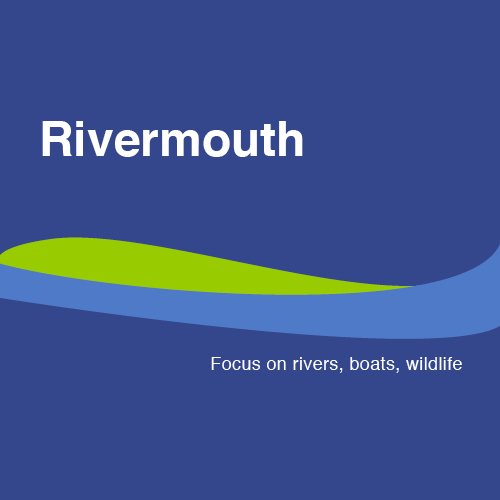The Hub & town admin
Example: Rivermouth

Rivermouth
Focus on rivers, boats & wildlife
Rivermouth is a town naturally embedded in nature with a special focus in creating and maintaining a balance between what nature offers and what humans might want.
The people in this town are pretty much down to earth, and their lives are in many ways determined by the seasons and the weather.
The boats that are built in this town are for everyday use, practical, sustainable, durable, rather than fancy.
These boats will make the use of the waterways practical and affordable.
The Hub & town admin
Any town can apply for a town space on the Hub. Only citizens of the town can use this space. All administrative tasks can be run via the Hub.
Case 1: Kai wants to move into a house
Kai logs into his Hub account and enters the Rivermouth town space (an extra login is not necessary since the login into the Hub already verified Kai’s identity and his right to enter this town space).
All properties are owned by communities within Rivermouth to avoid profiteering and speculation with living spaces. Via the Hub, Kai starts his search for a new home. The Hub takes him through every single step from presenting which houses in which communities are available to making appointments in the communities for a look around.
Once Kai has found a house he likes in a community which are happy to welcome him as a new member, he confirms his decision to move into that house, and then the Hub does the rest of the work: The Hub registers the moving date and the new address, it adds Kai’s flat as available to the network, it registers the new address with the town’s communication service and with the town’s micro grid, it changes the address for the tax report and issues a request for a new passport entry, it informs his doctor of the new address and everything else. Not once, does Kai have to go to any admin office. If the town’s administration has a question, they can contact Kai directly via the Hub.
Case 2: taxes
Since the Hub registers all incomes generated in town, tax payments are basically automated. Besides the tax system is pretty simple and without loopholes. Plus there are a number of costs that are met by direct bills. Take for example gardens: every citizen pays into the pot for the public gardens, like the Flowers & Herbs Garden or the Common Garden. Gardens that are public but not used by everyone like The Party Den or The Senses Garden sell tickets to cover their costs.
And then there is the question of where someone lives. A person who lives in a flat is surrounded by fewer green spaces than a person living in a detached house, hence the latter will pay a bigger bill for the maintenance of the town’s green spaces.
Also a fisher who not only provides the town with the fish it needs (for which he gets paid) but also takes care of the river, will pay less taxes than a company which creates waste and thereby incurs additional costs.
The Hub has all the relevant information and can therefore generate a tax statement, which the user only has to check. Plus, who pays which taxes and why will be fully transparent.
Case 3: Miles, a member of the town’s admin team
Miles moved to Rivermouth, because he wants to train as a boat builder. But at the moment there are no vacancies for apprentices. That’s why the Hub suggested a stint at the town’s admin offices, an easy job and a great chance to get to know the town and its workings. Plus, this way, Miles can help out whenever some extra hands are needed at the boat yards.
Miles day starts with phone calls to the spokespeople of three town communities to check whether everything is OK. If something needs fixing, like a burst pipe or a broken solar panel, Miles logs into the town admin Hub to see which specialists have capacities and contacts them. Next, Miles checks which new registrations have come in and who might need a new passport. Though, since all of this is automated, it’s really just a way to keep up to date with developments. Anonymised statistics, for example, are automatically generated by the Hub.
However, if something looks fishy, Miles can contact the user in question and ask for more details to ensure that no law is violated.
Before the lunch break, Miles looks over the latest business reports, and checks the balanced economy indicators. If something looks off balance, he contacts the economics team across the hall.
After lunch, Miles opens his office for people who prefer to do their business in person and not via the Hub. But since the Hub does a great proportion of he admin work, no citizen has to wait long for their appointment.
Case 4: data security and access
The Hub will be built with the kind of security measures that ensure two things: no unauthorised access and no fraud. These two aims might sound like a contradiction but they don’t have to be.
The Hub will introduce measures which ensure that a registered person is verified beyond doubt and cannot temper with their own data. For example, Selma works at the pharmacy and her salary is transferred via the Hub. This way the amount of the salary is logged and cannot be changed.
Due to the reliability of the data provided via the Hub, a lot less data will have to be shared. For example, the energy company doesn’t even need to know Selma’s name. They only need the address for the energy delivery and could receive the payments with a number attached to the address rather than to the personal data, if Selma chooses that option.
Why is that approach interesting if it can’t facilitate fraudsters? Because freedom needs a certain amount of anonymity. And freedom needs the security that data can be trusted.
The Hub can provide both.
